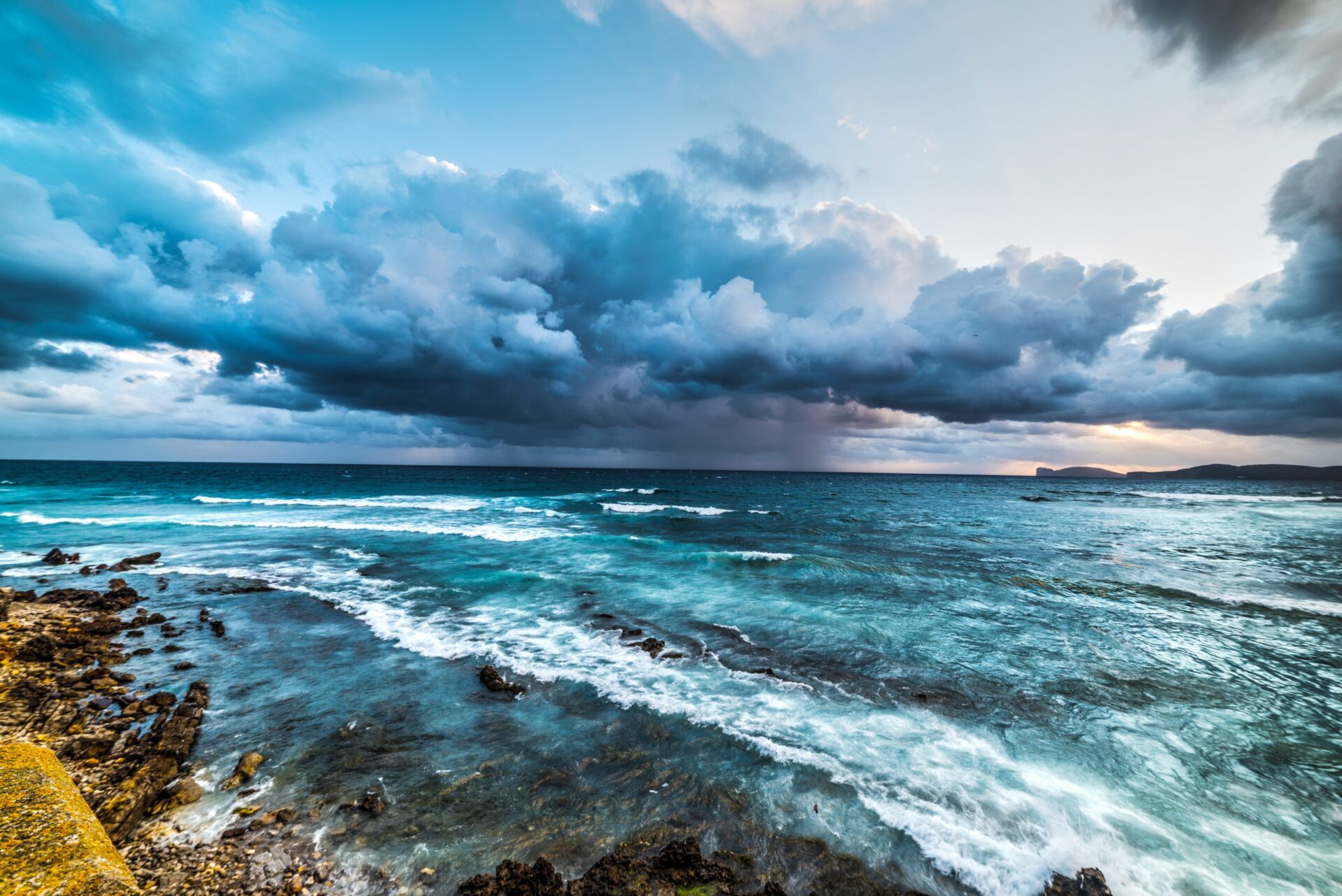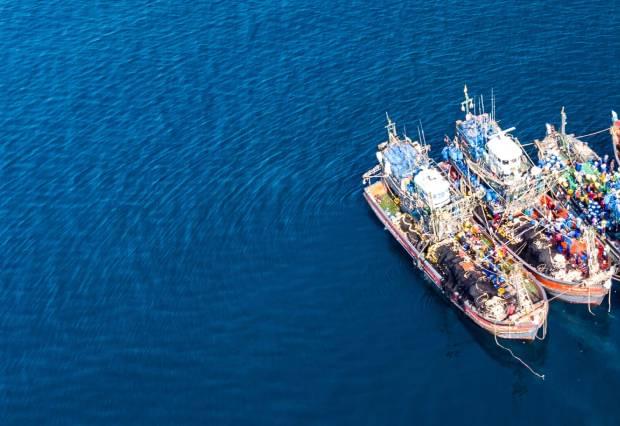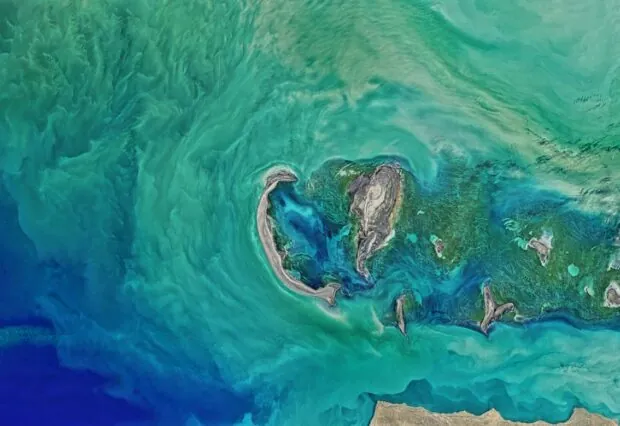- Business, governments and financiers can avoid losing US$8.4 trillion in ocean-based investments if they act now
- New tool launched to help investors identify ocean-based stranded assets
- WWF calls for ocean finance to be addressed at COP26 – global temperature rise below 1.5oC not obtainable without healthy oceans
GLAND, SWITZERLAND, 14 October 2021 – Investors in 66% of listed companies are collectively at risk of losing US$8.4 trillion due to declining ocean health and climate change if business as usual continues. Even keeping global temperature rise to 2°C will result in losses of US$3.3 trillion, which highlights the importance of keeping global temperature rise to the Paris Agreement target of below 1.5oC.
The figures were released today in a report, Navigating Ocean Risk: Value at Risk in the Global Blue Economy, published by WWF and Metabolic, which concludes that the financial sector needs to better assess ocean risks in their portfolios and must pivot from investments that damage the ocean environment to sustainable business models.
Repairing damage to the ocean will revive one of the world’s greatest resources and largest carbon sinks, without which it will be far harder to limit global temperature rise to 1.5°C.
Margaret Kuhlow, WWF Finance Practice Lead said: “A healthy and resilient ocean is vital for long-term economic resilience. At COP26, governments have an opportunity to boost both public and private investment in a sustainable blue economy that underpins a net-zero, nature-positive future. Our new analysis shows that acting now to put sustainable ocean finance at the heart of responsible, low-carbon investment could save trillions, and set a course for lasting prosperity.”
The report’s new financial model quantifies how changes to the physical environment and policy discourse affect assets and revenues relating to the blue economy. It shows that damage from climate change to coastal real estate, ports, shipping, marine renewable energy and seafood will increase in the next 15 years. Up to US$3.98 trillion is at risk to coastal infrastructure and almost US$3 trillion to global fisheries if no action is taken.
The report, a major contribution to the work of the Ocean Risk and Resilience Action Alliance (ORRAA), shows there are substantial financial benefits to reducing ocean damage and aligning financial portfolios with the Paris Agreement’s target. It concludes that urgent action is needed from all stakeholders if we are to shift the global blue economy to a more sustainable footing.
Karen Sack, co-chair and Executive Director of ORRAA said: “This report shows the scale of what we all have to lose. Today’s ocean and coastal assets at risk are tomorrow’s stranded assets, where hard earned value is going to be eroded if we don’t take immediate action and at scale.
“This report makes it clear that immediate, concerted action from business is required to protect what is at risk – the trillions of dollars of assets highlighted, but also the fragile ocean ecosystems on which we all depend. We have to put a far greater emphasis on valuing the ocean, which is one of the greatest assets we have in the fight against climate change and biodiversity loss.”
Alongside the report, a new, publicly available tool and dataset for investors will be launched to help identify potential stranded assets in the blue economy. The model helps identify exposure within an unsustainably managed blue economy so investors and financiers can steer away from high-risk investments with negative environmental impacts towards safer investments with nature-positive outcomes.
The COP26 climate summit is a critical moment to take action, and the finance sector must step up and align itself to the Paris Agreement targets by shifting their investments to those that support a sustainable, low-carbon future.
— ENDS —
Notes:
For more information, please contact news@wwfint.org
The report is available here.
The report will be launched at a webinar Global Value at Risk in the Blue Economy, Thursday 14 October 13:00 BST | 08:00 EST | 20:00 SST where Margaret Kuhlow will moderate a panel of experts who will discuss the report. If you would like to attend, you can register here: Webinar Registration – Zoom.
The Metabolic study used a first-of-its-kind systems methodology, which is to be made publicly available alongside the dataset, to investors who are stakeholders in the blue economy. The model is unique in that it has measured the impacts, drivers and pressures that influence six sectors in the blue economy (an area well known for its scarce data), to estimate how changes to the physical and policy environment can impact assets and revenues.
The model shows that damage to physical infrastructure from climate change will be increasing in the coming years, and that up to 25% of the value to sensitive, ocean-dependent resources like fisheries may be at risk if no action is taken.
This provides a first step for the financial community to start to assess their risks and engage their investee companies that are exposed to ocean change.
Investing in the recovery, protection and resilience of our ocean is essential to secure national economies, advance ocean-related mitigation and adaptation solutions and support the delivery of the 2030 Sustainable Development Agenda.
The Ocean Risk and Resilience Action Alliance, ORRAA, brings together the finance and insurance sectors, governments, non-profits, and stakeholders from the Global South to pioneer finance and insurance products that incentivise investment into nature-based solutions, with a focus on protecting the regions and communities that need it most. Our aim is to drive $500 million of investment into nature-based solutions by 2030, and surface at least 50 novel finance products by 2030, positively impacting the resilience of at least 250 million people in coastal areas around the world.
Metabolic BV is a global environmental modelling and systems change organization, and advises governments, businesses, and NGOs on how to adapt to a fast-changing global context, while creating disruptive solutions that can dramatically shift how the economy functions. We crunch data, provide strategies and tools, build pilots, and create new ventures that develop scalable solutions to critical problems. Core to achieving our mission is the transition to an economy that is regenerative and ‘circular’ by design.
About WWF
WWF is an independent conservation organization with over 30 million followers and a global network active in nearly 100 countries. Our mission is to stop the degradation of the planet’s natural environment and to build a future in which people live in harmony with nature by conserving the world’s biological diversity, ensuring that the use of renewable natural resources is sustainable, and promoting the reduction of pollution and wasteful consumption. Visit panda.org/news for the latest news and media resources; follow us on Twitter @WWF_media




